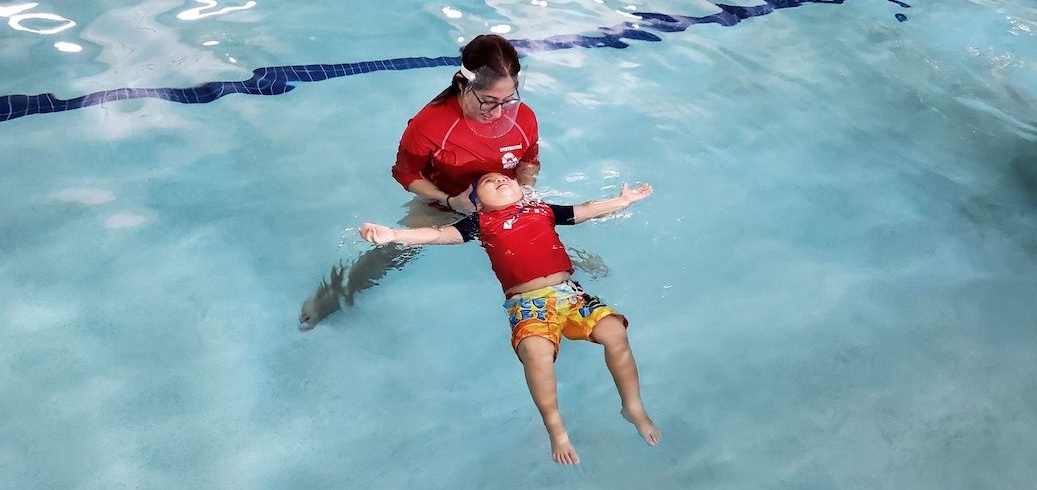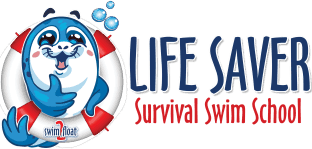
It is frequently asked if giving kids swim lessons during covid-19 is safe? The answer to that question is, “That depends.” The CDC has already stated that there was absolutely no evidence that this new coronavirus could spread through recreational waters. That’s because pools that are properly treated with chlorine and bromine inactivate this contagious virus. However, I said “it depends” because you have to have confidence in the swim instructor.
The swim instructor that you choose for instructions must be professional enough that she or he maintains checks on the changing water conditions. Also, the instructor must maintain virus-free shared surfaces, ensures that everyone is wearing a mask where necessary, and maintains social distancing when out of the pool.
Swim instructors need to make sure that the chemical levels within the pool are checked a minimum of twice daily. The chlorine should be 1.5 – 10 ppm and the bromine level should be 2.5 – 9 ppm. The acid level should also be checked and maintained between 7.1 and 7.9 – slightly alkaline.
Swim lessons given in a public or community pool are going to be slightly more dangerous. That’s because of shared surfaces outside of the pool and problems with social distancing. The safest pools for learning to swim are those at private homes.
Child Drownings Have Been Increasing
Unfortunately, the Covid-19 virus has led to an increase in drownings among children. More children are staying home and around their dangerous home pools. That’s why it’s so dangerous to have a home pool without a proper pool safety fence. If you live in Houston and you have a pool that might not be as safely protected as it should be, I encourage you to call pool fence company and ask for their recommendations.
Drowning has long been the #1 cause of death among children who are 4 and younger. It is also one of the 3 highest reasons for death under the age of 20. A person is usually only missing 5 minutes or less before they are found having drowned.
Let’s Stop These Terrible Statistics!
Teach Children to Swim at An Early Age
Most children are ready to learn to swim, or at least float by the time they are 6 months old. Don’t let this period with the coronavirus slow your family’s growth down. Swim lessons have been shown to reduce deaths due to drowning by as much as 88% in children 4 years old and younger. So, please find a professional swim instructor and teach your children to float and swim.
Install a Really Safe, Safety Barrier Around Your Pool
The CDC has stressed that a safe pool fence will reduce the chances of an unintentional drowning by over 50%. Most drownings occur in the backyard pool. The CDC says the pool fence should be at least 4 feet high and that it should have a self-closing gate that is also self-locking. The gate should be locked at all times and it should be checked regularly.
Know CPR and Re-Train Regularly
For drowning victims or near drowning victims, each and every second is important. Learn cardiopulmonary resuscitation (CPR) and re-train regularly. A person should be re-trained in CPR every 12 months.
Kids Swim Lessons During Covid-19 Are So Important!
Life Saver Survival Swim School is hoping you see why continuing to give your kids swim lessons during these times is so important! I don’t know that you can say it is more important than ever because teaching children to swim has always been important. But, I’ve talked to some parents who are on the fence… they are not sure if they should be giving their kids swim lessons right now. Well, after reading this short article, I hope they all see why it is important for their children to learn how to swim as quickly as possible.
Life Saver Survival Swim School teaches all of its’ classes at private home pools. When out of the pool, our instructors do everything possible to make sure everyone follows safe Covid-19 guidelines. All shared-surfaces are maintained clean and virus free.
If you have children that you are thinking about teaching to swim, please call the owner of Life Saver Survival Swim School. Her name is Bonnie. She can be reached by dialing (832) 366-3008. Or, you can email her.

